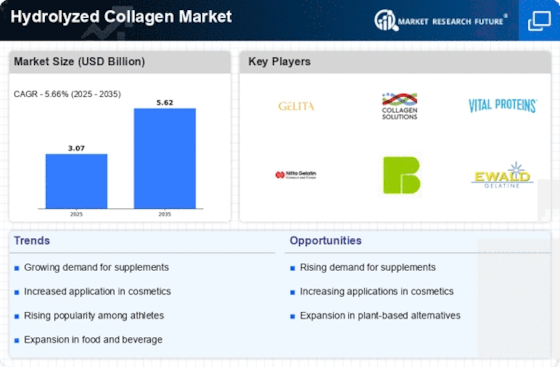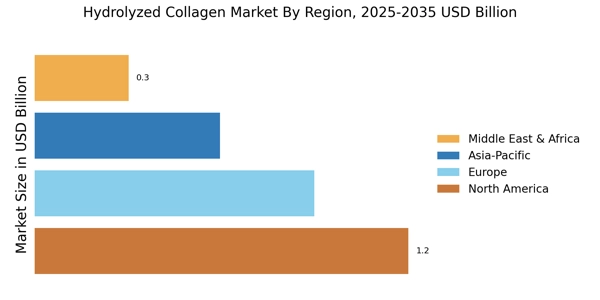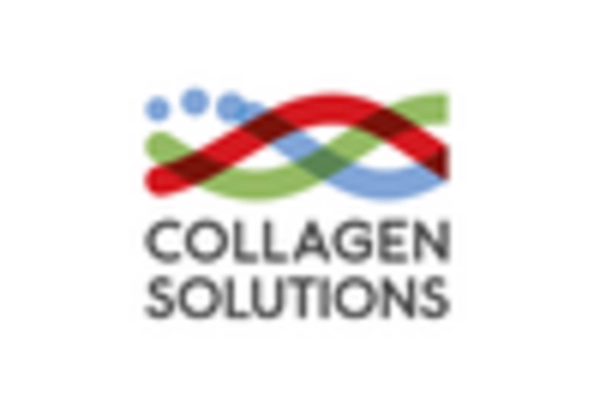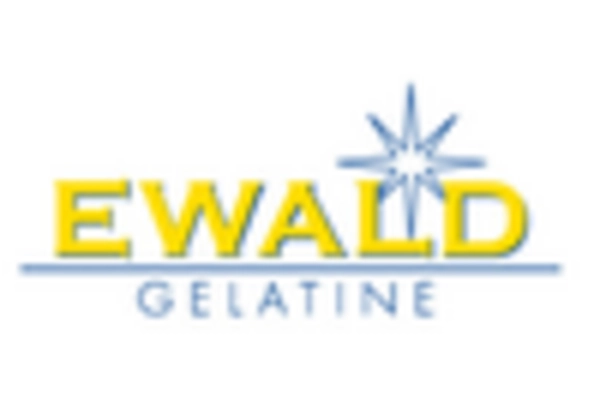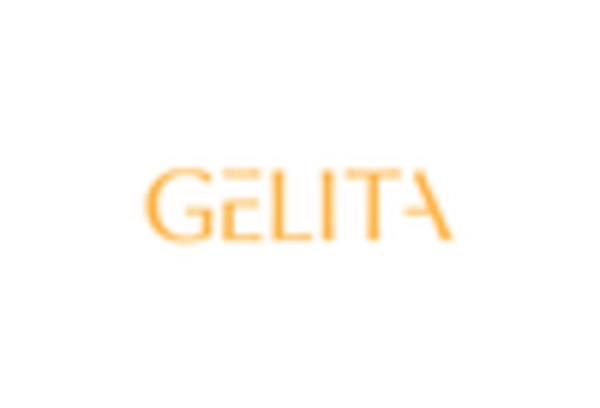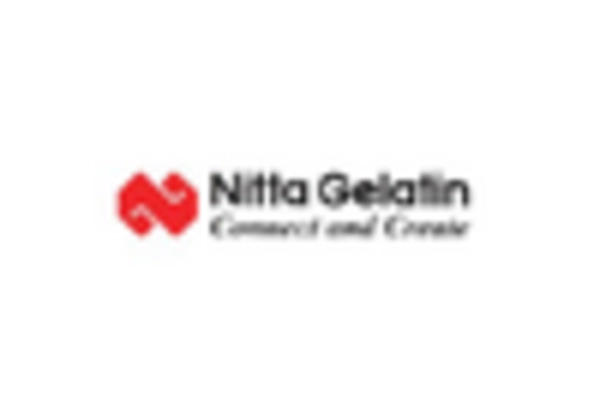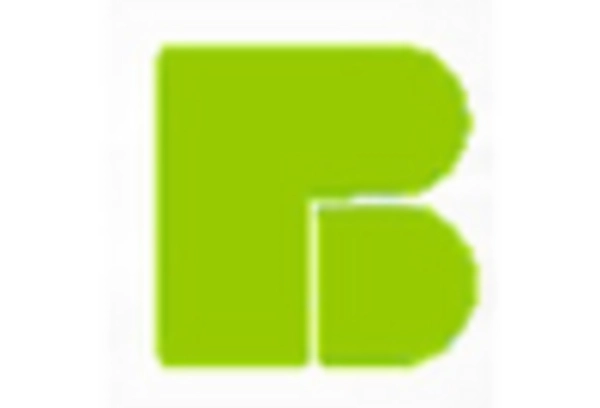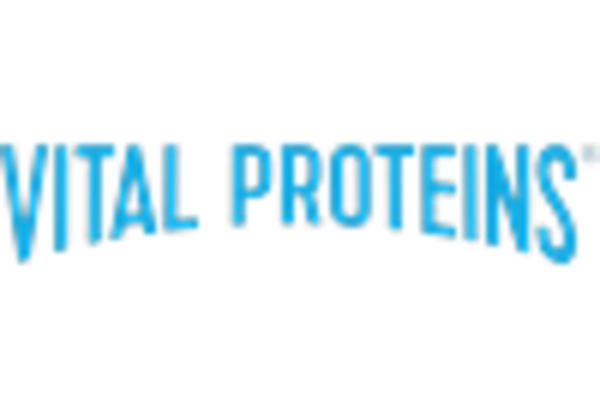Growth in Sports Nutrition Sector
The Hydrolyzed Collagen Market is also experiencing growth due to the increasing demand for sports nutrition products. Athletes and fitness enthusiasts are increasingly turning to hydrolyzed collagen for its potential benefits in muscle recovery and joint support. The sports nutrition market is anticipated to reach over 45 billion USD by 2025, highlighting a significant opportunity for hydrolyzed collagen products. This trend indicates that the Hydrolyzed Collagen Market could see a substantial increase in demand as more consumers incorporate collagen into their post-workout regimens, thereby enhancing their overall performance and recovery.
Rising Popularity of Nutraceuticals
The Hydrolyzed Collagen Market is benefiting from the rising popularity of nutraceuticals, which are food products that provide health benefits beyond basic nutrition. As consumers seek functional foods that support health, hydrolyzed collagen is increasingly recognized for its potential to improve skin, hair, and joint health. The nutraceutical market is projected to reach approximately 400 billion USD by 2025, indicating a robust growth trajectory. This trend suggests that the Hydrolyzed Collagen Market is well-positioned to capitalize on the increasing consumer interest in health-enhancing food products, thereby driving sales and market expansion.
Increasing Awareness of Health Benefits
The Hydrolyzed Collagen Market is experiencing a surge in consumer awareness regarding the health benefits associated with collagen supplementation. Research indicates that hydrolyzed collagen may support skin elasticity, joint health, and overall well-being. As consumers become more health-conscious, they actively seek products that promote longevity and vitality. This trend is reflected in the growing sales of collagen-based supplements, which have reportedly reached a market value of over 4 billion USD in recent years. The increasing awareness of the importance of collagen in maintaining skin and joint health is likely to drive demand in the Hydrolyzed Collagen Market.
Technological Advancements in Production
Technological advancements in the production of hydrolyzed collagen are playing a crucial role in the Hydrolyzed Collagen Market. Innovations in extraction and processing techniques have improved the bioavailability and efficacy of collagen products. These advancements not only enhance product quality but also reduce production costs, making hydrolyzed collagen more accessible to consumers. As manufacturers adopt these technologies, the Hydrolyzed Collagen Market is likely to witness an increase in product offerings and a broader consumer base. This evolution in production methods may lead to a more competitive market landscape, ultimately benefiting consumers with a wider range of high-quality collagen products.
Expansion of Beauty and Personal Care Sector
The Hydrolyzed Collagen Market is significantly influenced by the expansion of the beauty and personal care sector. With a rising emphasis on anti-aging products, many brands are incorporating hydrolyzed collagen into their formulations. This trend is supported by data showing that The Hydrolyzed Collagen Market is projected to exceed 800 billion USD by 2025. As consumers increasingly prioritize skincare and beauty regimens, the demand for hydrolyzed collagen in creams, serums, and supplements is expected to grow. This integration of collagen into beauty products not only enhances their efficacy but also positions the Hydrolyzed Collagen Market favorably within a lucrative sector.


